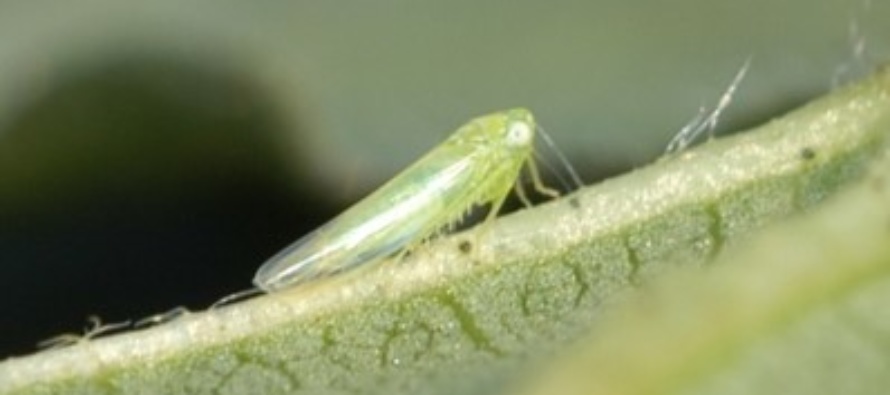Potato Leafhoppers in Soybean

Related Articles
- 2010 Soybean And Corn Variety Trial Data 3
- Mississippi Cotton Insect Situation of 2010: A Look Back 3
- Rice Insecticidal Seed Treatment Recommendations for Mississippi in 2011 0
Latest Tweets
Every few years we have a surge of potato leafhopper calls in soybean in MS. This is one of those years. Potato leafhoppers strongly prefer smooth leaf soybean varieties and I suspect that the calls increase on years where popular varieties are planted on a lot of acres with the smooth leaf trait. This pest feeds along the mid-veins of soybean leaves which causes the leaves to curl and twist. In some cases it can be confused with phenoxy herbicide damage. In severe cases the leaf margins will turn yellow and and plants will be stunted. The damage associated with potato leafhoppers is called “hopper burn”. There has been yield loss documented in the literature but this is typically restricted to infestations that occur very early in the season and severely stunt plants. In 2005, we experienced severe infestations of potato leafhoppers across many areas of the state and conducted many trials trying to document yield loss. We were never able to document any yield loss with the typical infestations and timings of infestation that occur in MS even when hopper burn was evident. Potato leafhoppers have proven to be extremely easy to control even with very low rates of pyrethroid insecticides. In our research we were easily able to prevent hopper burn and essentially “paint a line” across the field with insecticide applications, however, in no instances were we able to show yield loss from the curled leaves. Fields that exhibited symptoms of hopper burn in most cases “reversed” when more new growth occurred and the hoppers cycled or were treated.
Based on our observations in MS, we generally do not recommend treating for potato leafhoppers alone in soybeans. Exceptions would be if severe hopper burn was occurring and the plants were under and additional stress factor such as drought.

Treated vs. Non-Treated for Potato Leafhopper

Slight Leaf Curl from Potato Leafhopper

Severe Hopper Burn from Potato Leafhopper

Potato Leafhopper Adult




Let me tell You a sad story ! There are no comments yet, but You can be first one to comment this article.
Write a comment